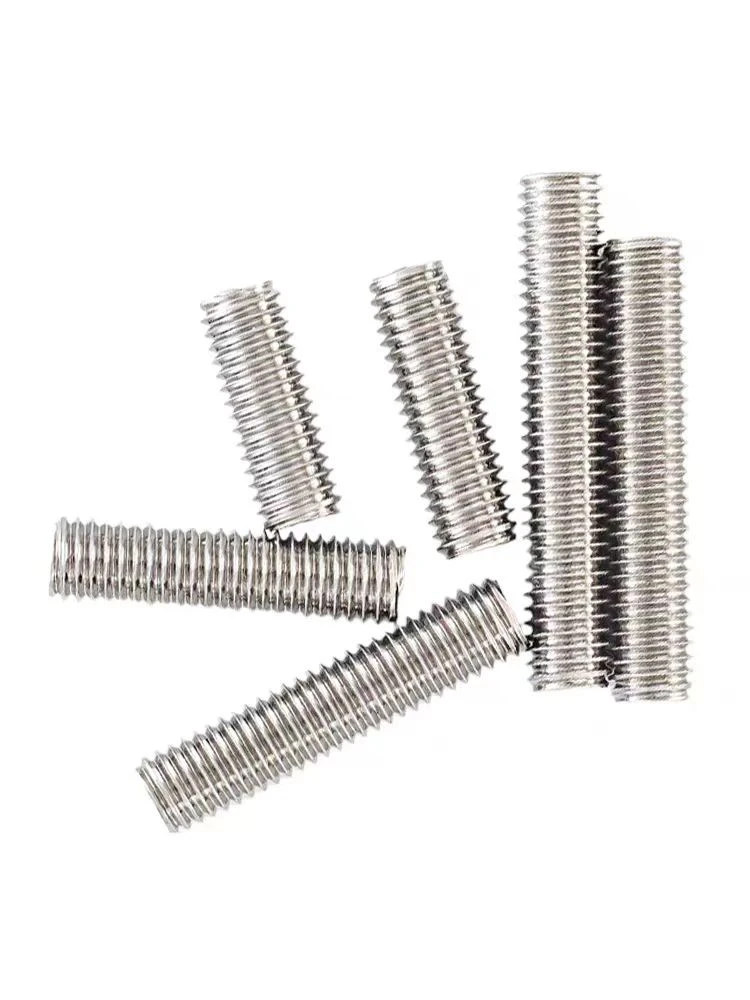

round fastener
Nov . 21, 2024 13:39 Back to list
round fastener
Understanding Round Fasteners Types, Applications, and Benefits
Fasteners are essential components in various engineering and construction projects, playing a critical role in maintaining the integrity and functionality of assembled products. Among the myriad types of fasteners available on the market, round fasteners are notable for their versatile application and unique design characteristics. This article aims to provide a comprehensive overview of round fasteners, exploring their types, common uses, and advantages.
What Are Round Fasteners?
Round fasteners are hardware items characterized by their circular shape, which enables them to provide a secure hold and even distribution of loads. They are manufactured in various sizes, materials, and configurations, making them suitable for a wide range of applications. Key types of round fasteners include rivets, bolts, screws, and washers, each serving distinct functions in an assembly.
Types of Round Fasteners
1. Rivets Rivets are solid or hollow cylindrical shafts with a head at one end. They are used to join multiple components together, particularly in structural applications like bridges and airplanes. Once inserted through a pre-drilled hole, the exposed end is deformed to form a second head, securing the joint.
2. Bolts Round in shape, bolts are threaded along their shaft and are primarily utilized in conjunction with nuts. The combination of bolt and nut creates a strong connection, permitting disassembly when needed. Bolts are common in mechanical constructions and furniture assembly.
3. Screws Similar to bolts, screws are also threaded but are generally designed to be inserted directly into materials without the aid of a nut. They come in various forms, such as wood screws, machine screws, and self-tapping screws, each tailored for specific materials and applications.
4. Washers Though often overlooked, washers play a crucial role in the assembly of fasteners. Typically round and flat, washers distribute the load of a fastener and prevent damage to surfaces. They can also serve as spacers or locking devices in certain applications.
Applications of Round Fasteners
The applications for round fasteners are diverse and far-reaching. They are commonly found in industries such as
- Construction Round fasteners are pivotal in building structures, from framing and roofing to window fittings and furniture assembly. Their reliability ensures that buildings adhere to safety and design standards.
round fastener

- Automotive In the automotive industry, round fasteners are essential for assembling various components, including engines, chassis, and interiors. Their resistance to vibration and environmental factors makes them ideal for automotive applications.
- Aerospace Given the stringent safety requirements of the aerospace industry, round fasteners like rivets are widely used in aircraft manufacturing
. Their lightweight yet strong properties contribute to the overall efficiency and safety of aircraft.- Manufacturing In manufacturing processes, round fasteners are utilized in machinery assembly and production lines. They allow for flexible adjustments and ease of maintenance, which is critical in high-paced industrial environments.
Benefits of Round Fasteners
Round fasteners offer several advantages that contribute to their popularity
- Ease of Use Most round fasteners are user-friendly, requiring minimal tools for installation and removal. This aspect is particularly beneficial in assembly line settings where efficiency is crucial.
- Cost-Effective Due to their widespread availability and straightforward manufacturing processes, round fasteners tend to be cost-effective solutions for a range of projects.
- Versatility The variety of round fasteners available ensures that there is a suitable option for almost any application, providing flexibility in design and assembly.
- Durability Many round fasteners are designed to withstand harsh environmental conditions, making them suitable for both indoor and outdoor applications.
Conclusion
Round fasteners are integral components in multiple industries, providing security, reliability, and durability in various applications. Understanding the types and benefits of round fasteners can help engineers and designers make informed decisions regarding their use in projects. As technology continues to evolve, it is likely that innovations in fastener design will enhance performance, ultimately leading to improved safety and efficiency in constructions worldwide.
Latest news
-
High-Strength Hot-Dip Galvanized Bolts-Hebei Longze|Corrosion Resistance&High Strength
NewsJul.30,2025
-
Hot Dip Galvanized Bolts-Hebei Longze|Corrosion Resistance&High Strength
NewsJul.30,2025
-
Hot Dip Galvanized Bolts - Hebei Longze | Corrosion Resistance, High Strength
NewsJul.30,2025
-
High-Strength Hot Dip Galvanized Bolts-Hebei Longze|Corrosion Resistance, Grade 8.8
NewsJul.30,2025
-
Hot Dip Galvanized Bolts-Hebei Longze|Corrosion Resistance,High Strength
NewsJul.29,2025
-
High-Strength Hot Dip Galvanized Bolts - Hebei Longze Metal Products Manufacturing Co., Ltd.|corrosion resistance&high strength
NewsJul.29,2025

